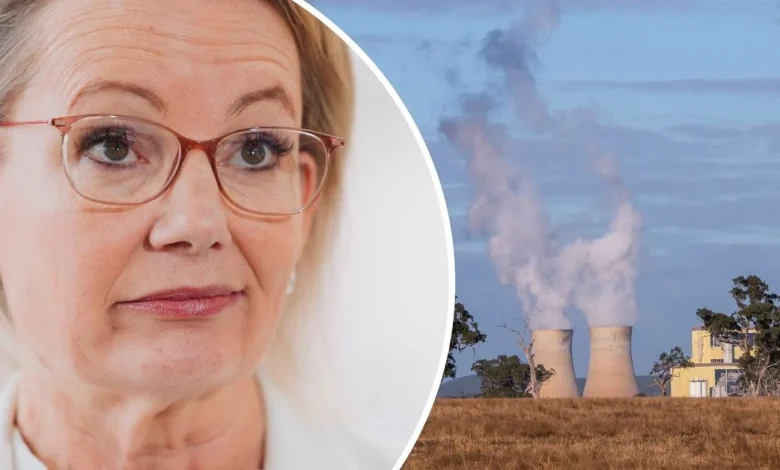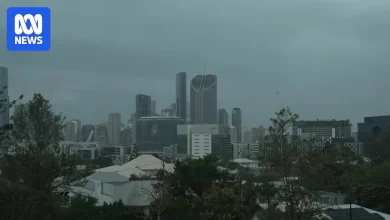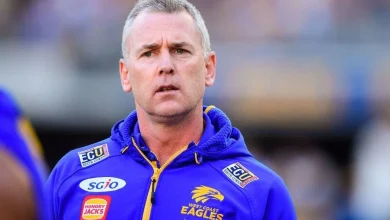Why the Coalition’s bitter fight over net zero could change everything for Sussan Ley

And it could result in a staggering reshuffle within the Liberals and Nationals under Opposition Leader Sussan Ley.
The controversial concept of net zero has been rapidly evolving since climate scientists first coined the term in the early 2000s.Opposition Leader Sussan Ley is hoping the Coalition can remain united on its net zero polict. (David Beach)
It refers to a point of neutrality where the level of greenhouse gases – or carbon emissions – being released on our planet are eventually balanced by their removal.
Scientists have figured out that net zero would mean that global warming stops.
According to the 2015 Paris Agreement, a legally binding international treaty on climate change, net zero would need countries like Australia to “achieve a balance between anthropogenic emissions by sources and removals by sinks of greenhouse gases in the second half of this century”.
The addition of the word “net” in net zero is vitally important.
This is because climate experts have accepted it would be almost impossible to reach zero emissions before it is too late.
This is where the idea of a target comes in.
To meet the net zero emissions by 2050 target observers say our coal fired power stations will have to close down. (Justin McManus)
The pain point among Coalition MPs
In Australia, the net zero 2050 target was introduced by former Liberal prime minister Scott Morrison in 2021.
Morrison made a bold pledge when he was PM: Australia will shift to a net zero economy in less than 30 years’ time.
The estimated cost of the plan has wildly fluctuated between $300 billion and $9 trillion, but it will actually help stimulate the country’s economy, according to then-treasurer Angus Taylor.
It is an ambitious target but one the Coalition seemingly stood united on.
Now, however, it is the detail that could change everything for Ley and the Coalition.
Some Liberal and National MPs have urged the Coalition to dump the pledge to achieve net zero by 2050.
Among its loudest detractors is New England MP and former Nationals leader Barnaby Joyce.
Joyce disagrees with the target and has actively campaigned to abolish it, even introducing the Repeal Net Zero Bill 2025.
He wants the Coalition to abandon the pledge because he claims it won’t address climate change and that there is a global movement against net zero.
Joyce has threatened to quit the Nationals altogether if he doesn’t get his way.
He also claims the policy was a key reason the Coalition lost the May federal election.
“We had a policy at the last election that supported net zero and we got our electoral backside handed to us on a plate,” Joyce said.
On the other side of the argument, several Liberal MPs have threatened or suggested they would quit the shadow ministry if the policy agenda is scrapped.
Liberal MPs have come together today to decide whether they stick with the target or not.
Deliberations are expected to drag on for days and the decision could see Ley lose key MPs either way.
Member for New England Barnaby Joyce has actively campaigned against net zero. (Dominic Lorrimer)
Why is 2050 the key deadline?
The target itself is causing most of the internal dispute – so why is it so important?
As per the Paris Agreement, the planet’s emissions need to be reduced by at least 45 per cent by 2030 and to net zero by 2050 in order to keep global warming to no more than 1.5 degrees.
It has been calculated that the world may not reach this target until 2050 if we continue the current rate of emissions.
The earth is already about 1.2 degrees warmer than it was in the late 1800s after the industrial revolution.
This precise measurement is crucial because climate scientists believe it is the only way to preserve a liveable planet.
Breaching this 1.5 degree threshold may result in a point of no return, triggering increased extreme weather such as heatwaves, droughts, floods and wildfires.
The United Nations predicts that between 2030 and 2050, climate change will cause approximately 250,000 more deaths per year from undernutrition, malaria, diarrhea and heat stress alone.
Exhaust plumes stream from chimneys at a steel plant near Magnitogorsk, Russia. (Dimitriy Kochergin)
What does net zero mean for individuals?
A move towards net zero is expected to impact both the economy and workers.
The Australian government said the transition to net zero will create jobs in new industries but it will also scale back older industries, like coal-fired power stations.
Morrison said in 2021 that the plan will “not put industries, regions or jobs at risk”.
“The principles are: technology not taxes; expand choices not mandates; drive down the cost of a range of new technologies; keep energy prices down with affordable and reliable power; and, be accountable for progress,” he said in a statement at the time.
Senator Andrew Bragg also insisted the net-zero target will help bring down power prices in the longer term.





